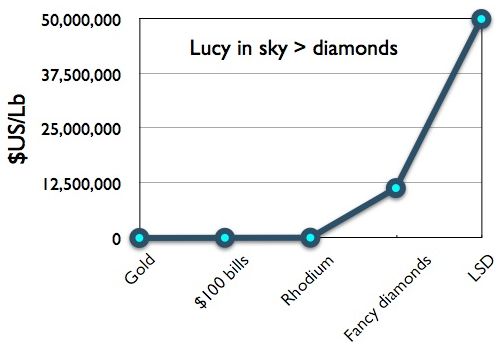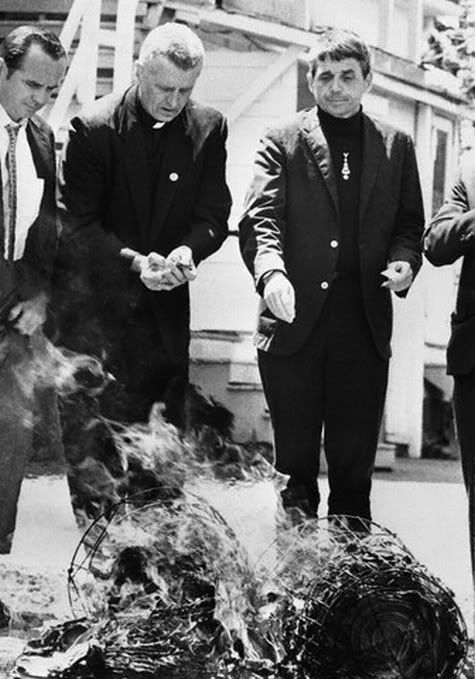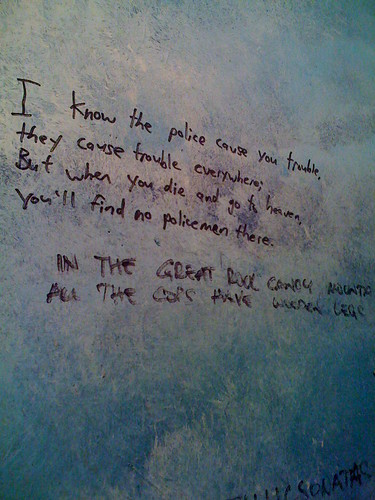“Broken hands on broken ploughs,
Broken treaties, broken vows,
Broken pipes, broken tools,
People bending broken rules.
Hound dog howling, bull frog croaking,
Everything is broken.”
-Bob Dylan, “Everything is Broken”
A deeply mystical understanding of the universe as fundamentally broken rooted in Kabbalism informs both Walter Benjamin’s essay “On the Concept of History” and Isaac Bashevis Singer’s novel The Slave. A cyclical sense of catastrophic defeat underlies each text. This sense is particularly Jewish in nature, but the sufferings of the Jews serve as a metaphor for the sufferings of the entire world; the Jews have suffered greatly but so has the entire underclass throughout history. Benjamin makes this synechdochal relationship explicit in his essay, which secularizes messianic thinking by applying it to the field of history instead of restricting exclusively to Jewish mysticism. Benjamin wrote his essay in 1940, as the Second World War was just beginning; he saw the rise of National Socialism and died fleeing its advance, a victim of yet another historical catastrophe. Singer’s novel was published in 1962, twenty-some years after Benjamin’s death and the full unfolding of Nazi terrors, which were likely beyond even Benjamin’s profound pessimistic imagination. In The Slave, Singer particularizes Benjamin’s messianic conception of history by setting his narrative firmly in Jewish experience and Jewish history: he uses another catastrophe (the Chmielnicki massacre of 1648) as the starting point for his novel. But this does not diminish or negate the secular broadening of messianic thinking that Benjamin initiated in his essay. Though the historical setting of Singer’s novel recalls the Jewish imperative to remember (Zakhor), its programmatic narrative design suggests that redemption is not to be found solely through Judaism, the Jewish people, or, indeed, any particular ethnic or religious group. Rather, redemption, for both Singer and Benjamin, is a process that, like history itself, is always happening; this is a radical insight that de-emphasizes the importance of apocalyptic thinking, which places redemption, characterized as the concrete realization of an ideal state of existence, at the end of history. Messianic thinking argues, rather, that redemption does not lay at the end of a path called history: it is embedded in history as “splinters of messianic time,” and presents itself as concrete opportunities that interrupt the progression of the broken nature of the universe. Any time an effort is made to repair what has been broken or correct an injustice is redemption realized. That this state of repair never becomes universal or permanent is the great unstated melancholy inherent in both texts. But hope does not entirely leave the picture. Gershom Scholem, the most important modern contributor to messianic literature, was a lifelong friend of Benjamin’s and found his conception of messianism (which Benjamin had evidently formulated much earlier than his essay) very impressive when he heard it as a young man:
In the idea of the messianic kingdom one finds the greatest image of history, on which infinitely profound relationships between religion and ethics are built. Walter said once: The messianic kingdom is always there. This insight contains the greatest truth—but only in a sphere which, to my knowledge, no one since the prophets has attained to. (Lowy, 101-102).
A messianic understanding of history—which is deeply shaped by Jewish mysticism and ethics but retains an essentially secular character—is central to both Benjamin’s essay and Singer’s novel. And the narrative of The Slave reflectively enacts some of the most important elements of Benjamin’s conception of history, often through the use of natural tropes and metaphors.
Having limned the history of messianism in “Toward an Understanding of the Messianic Idea,” Scholem turns his attention to a more specific instance in “The Messianic Idea in Judaism.” In this essay, Scholem articulates the messianic idea as it presents itself in the work of Benjamin and Singer. Messianism, he stresses, is not “part and parcel of the idea of the [unassisted and continuous] progress of the human race in the universe” (37). The mistaken yoking of messianism to Enlightenment ideas of progress was an early source of grief to Scholem. According to Lowy, Scholem, in reaction to “the fraudulent imitation of the Jewish messianic tradition [perpetrated by] the Neo-Kantian Marburg School,” wrote a scathing rebuke: “The messianic realm and mechanical time have produced, in the heads of the Enlightenment thinkers (Aufklärer), the –bastardized, accursed—idea of Progress […] This is the most pitiful interpretation prophecy ever had to bear” (98). The source of Scholem’s irritation with this linking of messianism to progress lay in his understanding that, for much of Jewish history, messianism was only thought about in “popular imagination” where it didn’t encounter “the opposition of the enlightened part of the community” (38). Here it took on an apocalyptic and utopian character. Redemption was seen variously “as a supernatural miracle involving the gradual illumination of the world by the light of the Messiah” in the Zohar (39); “a spiritual revolution which will uncover the mystic meaning, the ‘true interpretation,’ of the Torah (40); or as an imminent, apocalyptic event presaged by “disasters and frightful afflictions which would terminate history” (41). But in all these iterations of messianism, “the two states of the world [Galut, or the Diaspora, and Redemption] were still separated by a chasm which history could never bridge” (41). It was not until Rabbi Isaac Luria Ashkenazi (known as Ari, “the Lion) created an “extremely subtle and profound interpretation” did Kabbalah and messianism merge into a “unified whole” (42-43). At the heart of Luria’s system, which is fascinating but too complicated to paraphrase here, is the idea that exile, or Galut, is “a terrible and pitiless state permeating and embittering all of Jewish life, but Galut [is] also the condition of the universe as a whole” (43).In other words, the profoundly traumatic events that have historically beset the Jews are not exceptions but the normal course of Jewish history; they are an integral part of being a Jew. And this is also the condition of the entire universe, the entire course of history. Walter Benjamin expresses almost exactly this same sentiment when he writes that “The tradition of the oppressed teaches us that the ‘state of emergency’ in which we live is not the exception but the rule” (392).




















